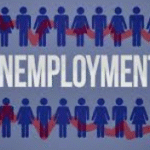The Global Housing Crisis
The Global Housing Crisis
Housing is a fundamental human need and a recognized human right under international law. Yet, access to affordable, adequate, and secure housing is increasingly out of reach for millions. The global housing crisis is not simply a matter of insufficient supply but reflects deep-rooted structural inequalities. It is a symptom of market failure, political neglect, and growing socio-economic divides. This article aims to unpack the drivers and dimensions of the global housing crisis and outline paths forward to ensure inclusive urban futures.
Several intersecting factors have contributed to the global housing shortage and affordability crisis:
By 2050, nearly 70% of the world’s population will live in urban areas, putting immense pressure on housing infrastructure, especially in developing nations. In many cities, housing has become an investment vehicle for global capital rather than a social good, fueling speculative real estate bubbles and pricing residents out. Restrictive zoning laws and the prioritization of high-end developments have constrained the creation of affordable housing in many cities. Over the past few decades, public and social housing stocks have declined as governments have shifted toward market-based approaches. Natural disasters, sea level rise, and environmental degradation are increasingly forcing populations into precarious housing conditions or informal settlements.
Overcrowded and substandard housing is linked to respiratory diseases, mental health issues, and increased vulnerability to infectious diseases.Children in unstable housing are more likely to miss school, perform poorly, and experience developmental delays.Lack of affordable housing near job centers creates barriers to employment and increases commuting costs and stress.Segregated housing markets perpetuate spatial inequality and reduce opportunities for social integration and civic engagement.
Solving the housing crisis requires a multidimensional and rights-based approach. Governments must increase investment in non-market housing and cooperative housing models. Mandating affordable housing units in new developments can ensure socio-economic diversity in urban centers. Legal frameworks must safeguard tenants from arbitrary eviction and rent gouging. These models de-commodify land and housing by giving communities control over development and affordability. Building sustainable housing that is energy-efficient and adaptable to climate impacts is critical for long-term resilience.
Frankie Luo





